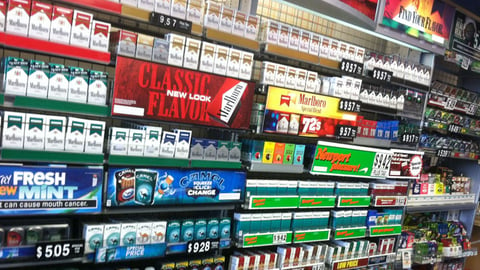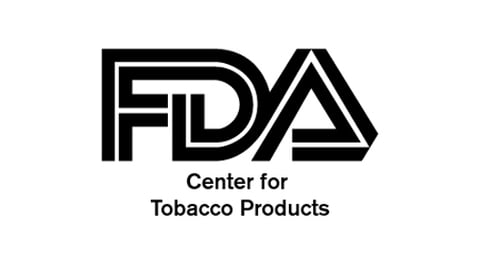FDA Calls Out Retailers for Youth Tobacco Sales
SILVER SPRING, Md. — The Food and Drug Administration (FDA) is cracking down on select locations of Circle K Stores Inc. and Walgreens for selling tobacco products to underage consumers.
On Feb. 7, the agency filed complaints seeking No-Tobacco-Sale Orders (NTSO) against the retailers for repeated violations on the sale and distribution of tobacco products, including cigars and menthol cigarettes to minors.
The NTSO actions seek to bar a Circle K store in Charleston, S.C., and a Walgreens drug store in Miami from selling tobacco products for 30 days.
According to the agency, Walgreens is currently the top violator among pharmacies that sell tobacco products, with 22 percent of the stores inspected having illegally sold tobacco products to minors.
The NTSO action against this Walgreens outlet follows the issuance of more than 1,550 warning letters and 240 civil money penalty actions against Walgreens stores nationwide for unlawful tobacco product sales to minors. However, this is the first NTSO action taken against a Walgreens store.
While the NTSO action against Circle K is not its first, it marks the first time the agency has initiated an NTSO complaint for the sale of deemed products — cigars — to minors. Since 2010, the FDA has issued more than 1,045 warning letters and 205 civil money penalty actions to retailers doing business as Circle K for sales to minors.
According to the FDA, among other national, corporate-owned chains, 17.5 percent of Walmart Inc. stores inspected had violations for illegal sales of tobacco products to minors. Additionally, 14 percent of Dollar General Corp. stores inspected, and 9.6 percent of Rite Aid Corp. stores inspected had illegally sold tobacco products to minors.
FDA Commissioner Scott Gottlieb will request a meeting with Walgreens corporate management "to discuss whether there is a corporate-wide issue related to their stores' non-compliance and put them on notice that the FDA is considering additional enforcement avenues to address their record of violative tobacco sales to youth," he said.
Gottlieb added he was "deeply disturbed that a single pharmacy chain racked up almost 1,800 violations for selling tobacco products to minors across the country."
According to the commissioner, the agency is evaluating its data on other large, national retailers to identify chains that also have high rates of repeat violations and are considering what additional measures the FDA should pursue.
"While many of our recent enforcement actions focused on the illegal sales and marketing of e-cigarettes, today's announcement is a reminder that youth access to all tobacco products remains a public health problem. No child should be using any tobacco or nicotine-containing product. And no retailer should be illegally selling these products to minors," Gottlieb said.
"As part of our Youth Tobacco Prevention Plan, we'll continue to employ all the tools at our disposal to monitor, penalize and prevent sales of all tobacco products, including e-cigarettes, to minors at brick-and-mortar stores and Internet storefronts as we work to ensure these products are sold in ways that make them less accessible and appealing to kids," he added.
When violations are found, the agency generally issues warning letters and may take enforcement actions, including civil money penalties and NTSOs. Since its retailer enforcement program began in 2010, the FDA has issued more than 81,570 warning letters to retailers for violating the law, initiated more than 19,800 civil money penalty cases and issued 145 NTSOs, as of Dec. 31.
Under the law, the FDA may pursue an NTSO against a retail outlet that has committed a total of five or more repeated violations of federal tobacco regulations within 36 months. After the FDA initiates an NTSO action by filing a complaint, a retailer has the opportunity to respond to the complaint, and must generally do so within 30 days.
Retailers who receive an NTSO complaint from the FDA may enter into a settlement agreement or respond with an answer and contest the allegations before an administrative law judge. If an NTSO goes into effect, a retailer is responsible for ensuring that the establishment does not sell tobacco products during the specified period.





